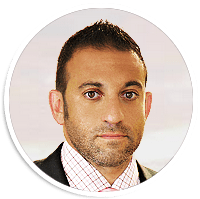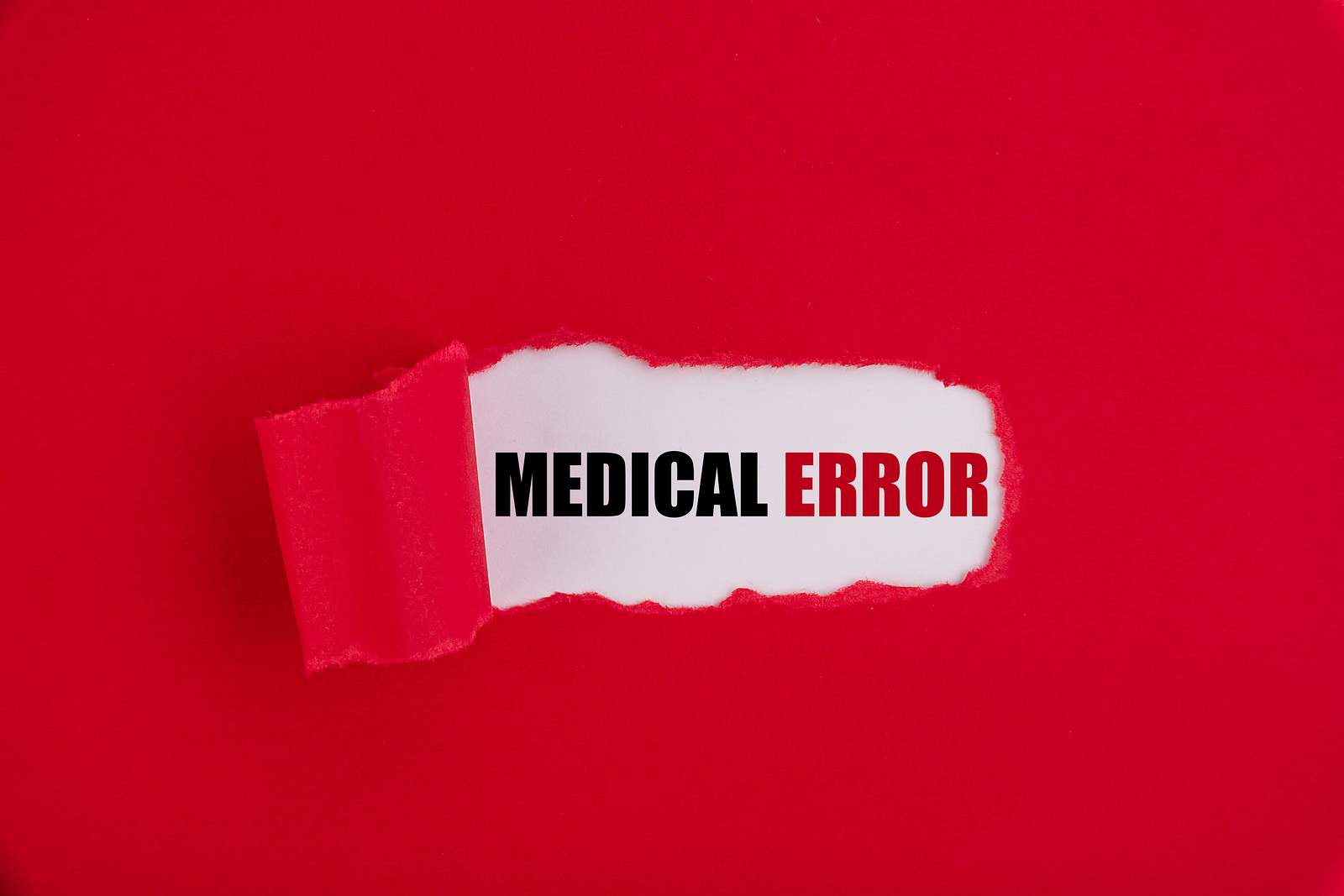Compensation For Medical Malpractice Damages
It is widely believed that all doctors must take an oath to “do no harm.” In fact, that phrase is not necessarily part of the oath doctors take. Doctors do, however, commit their lives and careers to promoting and protecting patient health, and for the most part, they provide this essential public service with appropriate care and skill.
Doctors and other medical professionals, however, are also human. They can no more hope to do no harm than any other person burdened by life’s stresses, ambiguities, and moments of uncertainty. Even the best doctors and nurses commit medical errors. Most of those slip-ups, hopefully, do no harm. But, some do, and rise to the level of medical malpractice. In fact, a widely reported study reported that medical error may represent the third-leading cause of death in the United States.
In this blog post, we explore the legal side of medical errors: their potential impact on patients, and how an experienced medical malpractice attorney can help injured patients and grieving families recover from them.
Defining Medical Errors
What is medical malpractice error? This study offers a definition:
Medical error has been defined as an unintended act (either of omission or commission) or one that does not achieve its intended outcome, the failure of a planned action to be completed as intended (an error of execution), the use of a wrong plan to achieve an aim (an error of planning), or a deviation from the process of care that may or may not cause harm to the patient. Patient harm from medical error can occur at the individual or system level.
In practical terms, this definition can include a wide variety of mistakes in the provision of medical care, such as:
- Diagnostic failures: Doctors and other medical providers face a daily challenge of diagnosing medical conditions. They interpret symptoms, patient accounts, and information derived from exams and tests to identify a patient’s medical status and needs. Some diagnoses are close calls. Others are not, or should not be. Mistakes in diagnosis happen when health care providers lack the appropriate information to make a diagnosis, misinterpret the information they have, or both. The consequences of a misdiagnosis can prove catastrophic, such as when a medical professional fails to identify a potentially deadly condition like cancer or meningitis.
- Surgical/treatment mistakes: Doctors perform complicated, delicate procedures on patients every day. In many cases, these procedures quite literally involve the patient placing his or her life in a medical professional’s hands. Everyone hopes and expects health care providers will carry out those procedures with appropriate skill and attention to detail. Sometimes, however, mistakes happen. Through what usually constitutes a tragic series of preventable errors, doctors have been known to perform procedures on the wrong body part of a patient, to leave surgical instruments inside a patient, and to employ inappropriate techniques or means during a procedure. Any such mistakes can leave a patient worse-off than when the procedure began.
- Medication errors: Medication plays a vital role in the treatment of patients. In the best cases, the right medicine spurs massive improvement in a patient’s health and wellbeing. In the worst cases, however, the wrong medication inflicts serious, even fatal, injury. Patients can receive improper medication in a variety of ways. Medical professionals may fail to recognize potentially dangerous interactions between a patient’s regular medication and a newly prescribed drug. They may give a patient an improper dosage, or mistakenly swap one pill for another. Whatever the reasons for medication errors, they put patients at serious risk of dangerous health complications.
- Process slip-ups: Think of the last visit you paid to a doctor’s office. How many different people did you interact with? We bet it was at least three—the person at check-in, the person who took your vital signs, and a medical provider (a doctor, nurse, or P.A.) authorized to treat you. The number of people you might see in an average hospital stay is probably ten times that many. In any setting where one person receives services from multiple providers, the prospect exists for process mistakes. Every hand-off of information about a patient from one provider to the next represents a potential point of error. Every time someone enters data into an electronic medical record poses a risk of a fateful typo. Every time a nursing shift changes represents a moment when critical patient care could slip. Medical professionals work hard to minimize these sorts of process errors, but they happen, and they can leave patients badly harmed.
These are, of course, just some of the ways to classify medical errors. In a broader sense, any mistake that leads to patient harm could constitute medical error.
Legal Remedies for Medical Errors
Patients who fall victim to medical errors may have the right to seek compensation from the medical professionals who harmed them. However, Florida law does not make it particularly easy to hold doctors and other health care providers accountable for their mistakes. Here are just some of the hurdles victims of medical error in Florida must confront in seeking justice and compensation.
Florida’s Strict Definition of Medical Malpractice
Since the passage of the Florida Comprehensive Medical Malpractice Reform Act in 1985, Florida law has defined medical malpractice as a health care provider’s violation of the “prevailing professional standard of care.” Proving a claim for medical malpractice requires showing a causal connection between a medical error and a patient’s injury or death. Having an injury after receiving medical care, on its own, is not enough to prove a causal connection, however, unless that injury consists of a medical implement being left inside of the patient.
Also, Florida law provides that “if the injury is claimed to have resulted from the negligent affirmative medical intervention of the health care provider, the claimant must, to prove a breach of the prevailing professional standard of care, show that the injury was not within the necessary or reasonably foreseeable results of the surgical, medicinal, or diagnostic procedure constituting the medical intervention if the intervention from which the injury is alleged to have resulted was carried out in accordance with the prevailing professional standard of care by a reasonably prudent similar health care provider.”
What this means is that if you claim a medical error caused an injury, you cannot recover compensation unless you show that the injury was not a foreseeable risk of the medical treatment you received.
In other words, Florida law suggests that in some cases, patients assume the risk of medical errors. Injured patients often need the help of an experienced medical malpractice attorney to make sure they can prove their injury was not foreseeable.
Florida’s Deadlines for Medical Malpractice Claims
Most personal injury lawsuits in Florida must be filed within four years of an injury. Legal actions seeking damages resulting from medical errors, however, are different. They must be filed within just two years of when the injured patient discovers (or reasonably should have discovered) a connection between a medical error and an injury or death. In addition, patients injured by a medical error have an outside time limit on taking legal action for damages. Any legal action must begin within four years from the date of the medical error, regardless of when the connection between the error and injury was discovered.
There are only TWO, limited exceptions to these rules:
- If the medical error stays hidden from the injured patient because of a medical professional’s fraud, concealment, or intentional misrepresentation, the maximum period for taking legal action can be extended to seven years from the date of the medical error.
- If the injured patient was under age 8 when the medical error happened, the time for taking legal action lasts until at least the patient’s 8th birthday.
You are not alone in thinking these rules sound complicated. Even experienced medical malpractice attorneys find them challenging. To protect the rights of a patient injured by a medical error, these lawyers must work quickly to figure out the earliest point in time when a patient found out, or should have found out, the connection between the medical error and injury or death. That is not always so clear, which is why the sooner an injured patient seeks the help of an experienced medical malpractice attorney, the better the chances of protecting the patient’s rights.
Florida’s Special Procedures for Medical Malpractice Claims
Florida law creates even hurdles to clear in preparing a legal action seeking damages for a medical error. One requires that the injured patient’s attorney conduct a “reasonable investigation as permitted by the circumstances to determine that there are grounds for a good faith belief that there has been negligence in the care or treatment of the claimant.”
In most cases, Florida medical malpractice lawyers comply with this requirement by seeking a medical expert’s opinion about the nature and extent of the error, and its connection to the patient’s injuries.
Before filing a legal claim relating to a medical error, lawyers also must give notice to the medical provider of the patient’s intent to take legal action for compensation. The provider then must investigate the patient’s claim, exchange information with the patient’s lawyer, and then respond by either rejecting the claim, offering a payment as a settlement, offering to admit liability and to take the question of damages to binding arbitration. All of these steps must happen before the injured patient ever takes the step of filing a legal action in Florida court.
Florida law also creates exceptions to these procedures in certain cases. For example, when medical errors cause neurological injuries to an infant during childbirth, the injured child’s family must first seek compensation from a fund that the state government set up to compensate families on a no-fault basis. An administrative judge decides these claims first, before any legal action in a Florida court can happen.
Seek Legal Help After a Medical Error
Here is long-and-short of the information we have provided above:

As a victim of medical error in Florida, you have rights to a potentially significant amount of compensation. But, to recover that compensation, you need experienced, resourceful legal counsel representing you.
Medical errors cause personal injuries, but in Florida, the legal rights and remedies for victims of those injuries differ substantially from the rights and remedies of ordinary personal injury victims. It takes a lawyer with skill, sophistication, and a working knowledge of medical concepts and processes to represent the rights of victims of medical errors.
Lawyers who represent victims of personal injuries routinely urge them to seek legal help right away after an accident. That is always good advice. In the case of injuries or death caused by medical error, however, that advice takes on added urgency. The deadlines for taking legal action in medical error cases are so tight, and the procedural requirements are so potentially complicated, that patients and their families have not a moment to lose.
If you emerge from a medical procedure or treatment with an unexpected injury, seek legal help immediately. Likewise, if a loved one dies after receiving medical care or taking medication, call an experienced lawyer right away.
In the meantime, we urge anyone who seeks medical care to follow these practical tips that will help protect your rights if a medical error happens:
- Keep all records and information you receive from a medical provider and/or your insurance company that relate, in any way, to the medical care you receive. Most people find these records difficult to understand. We get that, but trust us, the information they contain could prove essential to seeking compensation for a medical error.
- Always have an advocate with you when you seek medical care; a family member or close friend who can speak up for you in the event you cannot speak for yourself, and who can take notes and ask questions on your behalf.
- Write down anything you find unusual about the care you receive. Like any human who makes a mistake, most medical providers who commit, or know about, an error that hurts a patient will show emotion. Take note of any comments or behavior that seem upset, embarrassed, or remorseful.
No one seeks medical care with the idea that it may hurt more than help. If you or a loved one came out of medical treatment in worse shape than before, speaking with an experienced medical malpractice attorney right away can help you understand your options. To contact Dolman Law Group Accident Injury Lawyers, PA about consultation on your case, you can either call our Clearwater office at (727) 451-6900 or fill out a contact form online.
Dolman Law Group Accident Injury Lawyers, PA
800 N Belcher Rd
Clearwater, FL 33765
(727) 451-6900







